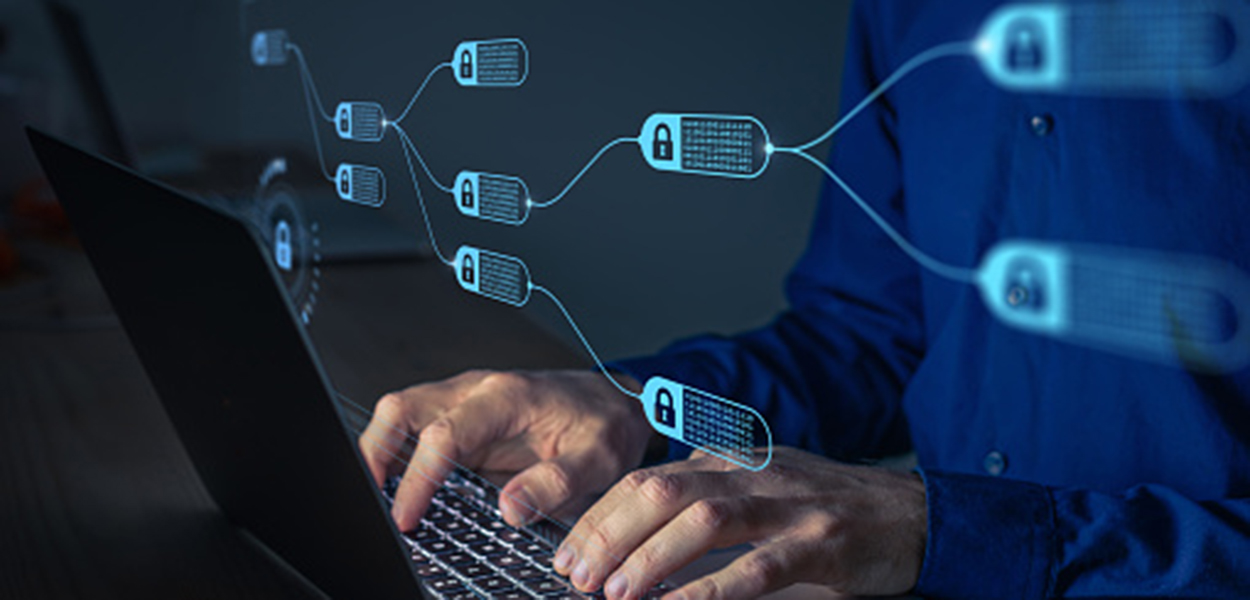5 Blockchain Issues and Challenges - PerfectionGeeks
While the potential for the globalization of Blockchain may seem, it's not the solution to all of the business challenges we face. While Bitcoin is a common word and blockchain is set to take over every field There are a few issues that hinder Blockchain transactions adoption.
What are the issues with blockchain? What are the obstacles that are hindering the adoption of blockchain and what can be done to overcome them?
What is Blockchain?
In the case of blockchains, the primary thing that comes to mind is Bitcoin The majority of people translate Blockchain Technology into cryptocurrency.
However, these are two distinct things. blockchain developers are the software, which is the program that runs within that system.
The design of this system can be depicted through its name. Its core element is a chain of blocks that stores information in time order. It is a distributed ledger system (DLT) which means that the chain is not kept in a single device but is stored on each device that runs an associated node on the blockchain.
Simply stated, a blockchain is a node-based network. Nodes are the devices that are connected to the blockchain through the software. Nodes are the ones that verify each trade or transfer of information inside the blockchain. In addition, many public blockchains permit anyone to establish and manage a node that makes it transparent and decentralized.
Although cryptocurrency is the most commonly used blockchain technology, however, it's not restricted to digital currency. Blockchains are being developed by some that allow for the circulation of documents, videos, images tokens, as well as other kinds of information.
The entire system makes it very difficult for hackers to counterfeit transactions since, when they alter one transaction, they don't have to alter the block in each node in the blockchain as well as the following blocks within the chain, if they do not want divergences between their linked transactions to become evident (or completely rejected).
What could go wrong?
As it seems, a LOT!
5 Problems with Blockchain Technology
Blockchain systems aren't perfect in numerous areas which makes the widespread adoption of blockchain a nebulous concept. Below, we'll walk you through five blockchain-related issues you've probably never heard of.
1. Security
Although they are as secure as they appear, blockchains can only be as safe as their weakest link. For instance, if a person required access to the data in an exclusive blockchain they would only require access to a single node in it.
This means that the device that is the easiest to hack into the blockchain poses in danger of compromising the security of the whole blockchain. However, it isn't the only threat to blockchains.
It's almost impossible to fake a transaction on a blockchain, however, it is feasible to have an untrue transaction accepted.
ID Proof Identity
Blockchains are quite democratic. They employ different voting methods for the consensus. In this instance, each node with identity has a chance to vote. A majority of the votes are won! There are some issues regarding Proof of Identity consensus algorithms that include minorities being left out or manipulating smaller blockchain networks.
It's much easier for criminal groups to join a blockchain by using numerous devices, thereby buying more votes for themselves.
If they reach an overwhelming majority, they will be able to have any transaction approved.
Prove Of Stake
This is a matter of the stakeholders in the blockchain. The amount you decide is proportional to the stake you own in the blockchain. This means that if you have most of the blockchain's assets and you control them, you will be the king.
If a group of individuals purchases more than 50% of the assets on a blockchain, they own the blockchain.
Both Proof of Identity and the Proof of Stake methods can fall victim to an attack of fifty percent assault.
We'll discuss the third option, Proof of Work, in a minute. Now, let's discuss how transparency could backfire.
Cyber Security's
Although blockchain could pose security threats, there's plenty that cyber security experts can do to reduce the risks. IT professionals with carefully developed technical and analytical skills are well placed to use blockchain as securely as is possible.
The most important thing for professionals in cyber security to adopt is using encryption. Through further encryption of the information that is sent through the blockchain, security experts can mitigate some of the most common security threats.
In addition, professionals in cyber security can use their communication skills to effectively communicate risks to their customers. It could be as simple as advising a business to scrutinize vendors and raise concerns about cyber security before adopting new blockchain technology. Cyber security professionals can offer advice on common guidelines for the security of information, for example, using pseudonyms when conducting transactions on the internet.
2. Transparency
There's been a lot of debate about the use of blockchain technology in supply chains. It seems like a fantastic idea! In the end, transparency in supply chains can offer the security everyone needs to make ethical decisions.
But, using a public blockchain (the most popular version) in a business environment is not always the best option. Why? Because if a supply line is transparent, so will the information of all customers and partners who are part of the business.
In a commercial environment, transparency isn't the best option, since it lets the employees observe what everyone else is doing in real-time.
As customers don't like all companies involved in supply chains to have access to their personal information A business shouldn't wish their competitors to smell of their secrets, intellectual property, and plans.
3. Scalability
The bigger a blockchain gets and the more vulnerable it becomes. If this isn't sufficient to make you feel more secure, then there's more that we must discuss before you consider introducing blockchain technology into your company.
The fact that blockchains are redundant makes them difficult to scale. Every device within your network needs to be able to back up every transaction that is made. That's thousands of copies of the exact information!
It needs massive storage and the more extensive the blockchain has, the more power nodes will require to process all the information.
Even if you've got all your software, digital and hardware requirements met it's nearly impossible to manage your blockchain.
4. Regulation
The decentralization of authority means that there's no single authority to ensure law and order within the system. There are no moderators or leaders, and not even a regulatory agency!
And, of course, contracts that are based on blockchain (known as smart contracts) aren't legally recognized as significant contracts or proofs in many nations.
Additionally, since each user is from a different location and blockchain can transcend any borders, what laws should be used to govern smart contracts or agreements, transactions, and instances?
5. Energy Consumption
Blockchain technology uses up more energy than any other centralized system. In addition, their redundancy makes them draw more power than the typical cloud-based cloud system, but also their process of validation for transactions plays an important role as well.
In the beginning, they need more storage space than another system. The amount of electricity needed can be multiplied by the number of nodes in the blockchain.
Each node can store and process the same amount of data as a central entity on any other platform.
However, that's not our main problem in this article. Did you recall the third method we discussed? It needs a lot of resources to be able to run.
Evidence of Work
With Proof of Identity, every device has the same weight. For Proof of Stake, the most significant stakeholders are the ones to rule. However, Proof of Work requires effort from the participants and their devices.
When a miner makes use of Proof of Work to validate the transaction, they face an intricate mathematical problem that requires a lot of computing power to resolve.
The mathematically complex issue is more about checking the authenticity of transactions through their hash. Why is this difficult? Because a hash is combined with another one upon every transaction.
To verify the authenticity of a transaction it is necessary to trace the hash's history up to the point of origin. Cryptocurrency miners work through these complicated algorithms and match hash matches and receive a cryptocurrency payment for every block they verify.
The goal of all the work is to secure this blockchain, making it difficult and more difficult for a criminal to verify fraudulent transactions, all at the cost of huge electric bills and massive amounts of energy usage.
It is believed that Bitcoin alone consumes the same amount of energy as the entire countries of Malaysia as well as Sweden.
Could Blockchain be the Answer You're Looking For?
Blockchain is an open ledger technology designed to build open and decentralized systems. It might appear safe or exclusive, but it is also democratic and like a geeky hipster's paradise however, it's not a 100% foolproof system.
If you think that transparency is the strength of blockchain you should wait until the medical information you have is saved in a medical facility that uses blockchain technology.
Blockchains aren't scalable without running out of resources, nor are you able to control it since there aren't any standard laws on the use of blockchains. The data and evidence stored in the blockchain aren't considered to be substantial in court.
You can also save nothing other than energy by switching to the Proof of Work blockchain. It is only harmful to the environment when you switch from an uncentralized system to a blockchain unless the previous system was an old-fashioned energy-intensive waste of paper and the energy used by an enterprise.
For blockchain application development contact PerfectionGeeks Technologies.








